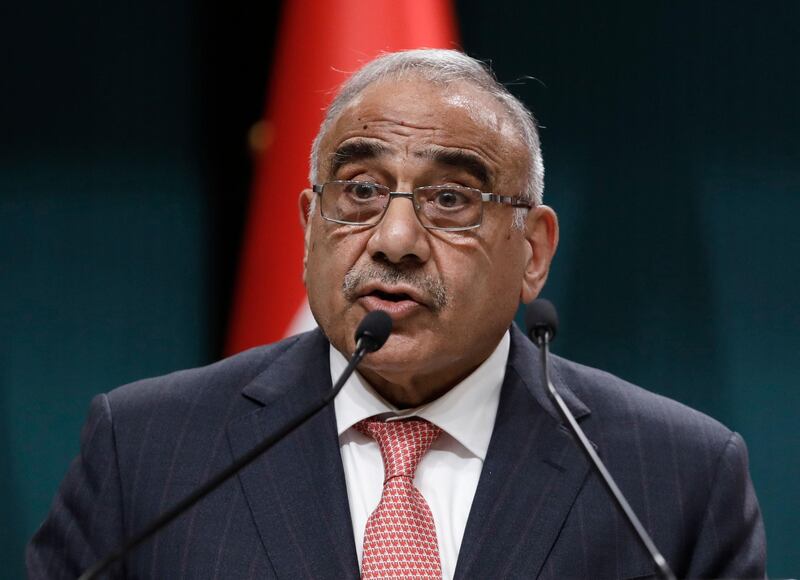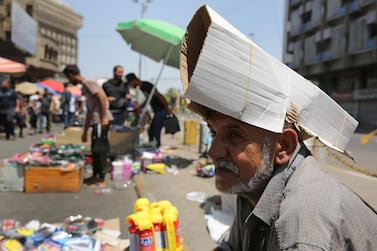Iraqi Prime Minister Adel Abdul Mahdi is facing increasing pressure from politicians to complete the formation of his government to tackle corruption and address utility shortages.
Since he assumed office last October, independent candidate Mr Abdul Mahdi has failed to form the required 22-minister cabinet and assert his influence over the two major political parties who won seats at the last election.
The premier has only been able to freely choose a handful of ministers so far because of the dominance of the two parties, who both failed to get a majority. They insist that they should nominate their own candidates.
The Islah bloc is led by the Saairun party of populist Shiite cleric Moqtada Al Sadr. They won the largest number of votes and backs Mr Abdul Mahdi's appointment as premier. The Binaa bloc is led by Hadi Al Amiri's political alliance Fatah and includes the political wing of the Iran-linked Popular Mobilisation Forces, an umbrella group of militias that were formed to fight ISIS.
Prime Minister Abdul Mahdi, 77, is an independent politician who choose not to run in the May 2018 elections, but was appointed to office by President Barham Salih last October. He is seen as a compromise candidate by Binaa and Islah, the two biggest Shiite groups in parliament.
The power struggle between the two rival groups has foiled efforts to form an Iraqi government.
Saairun won 54 seats of out the 329-seat parliament, and Fatah came second with 47.
"It's very important to complete the cabinet, especially the security ministries, but without getting the approval of the Islah bloc it is unlikely," Iraqi MP Sarkawt Shams told The National.
The positions for the interior, defence, education and justice remain vacant despite various attempts to fill the posts.
The biggest threat facing the premier, however, is his failure to live up to his ambitious plan to reform the government, which has angered Islah, Mr Shams said.
“It has not been very successful so far,” he said.
While Islah allowed Mr Abdul Mahdi the freedom to choose ministers to positions it controlled, including the minsters for foreign affairs, oil, health, water and electricity, the defence, interior and justice roles have been the most contentious. They are critical to Iraq’s stability as they will need to address the root causes of popular unrest across the country.
"We are obligated to invite Prime Minister Adel Abdul Mahdi to appear in parliament to present a detailed report of the progress of his government formation and to explain the hurdles that have delayed his process," parliamentary representative for Islah, Hassan Al Aquli, told reporters on Saturday.
The Binaa bloc has imposed its will more forcefully on the premier by nominating Falih Al Fayyadh for the post of interior minister. Mr Al Fayyadh is the head of the Iraqi National Security Council and the chairman of the PMF. He is closely linked to officials in Tehran.
The Saairun party's Mr Al Sadr, who has been a vocal critic of Iranian influence in Iraq, rejected the nomination as it would have granted Iran's influence to permeate the Iraqi government.
A third group, Hikma, which is led by Shiite cleric Ammar Al Hakim and won the fewest seats at the last election, announced on Sunday that it intends to become the opposition after failing to hold much influence over Mr Abdul Mahdi.
“We have assessed the current situation of Iraq’s political process by taking in to account the poor public services and that led us to this stance,” the bloc said in a statement.
The delay in government formation raises concerns over the stability of the country following a bitter battle against ISIS and internal armed conflict.
The country is suffering from an infrastructure crisis, corruption and wasteful spending that resulted in months of protests in southern Basra last summer. Demonstrators demanded action to fix the stagnant economy and provide jobs.







